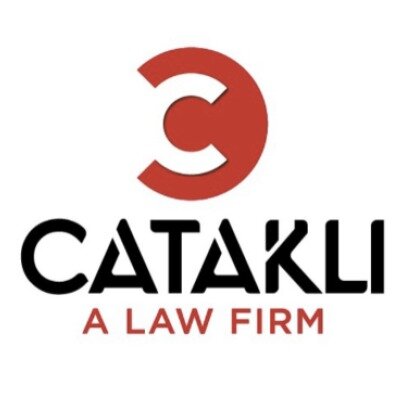Best Debt Capital Markets Lawyers in Luxembourg
Share your needs with us, get contacted by law firms.
Free. Takes 2 min.
Or refine your search by selecting a city:
List of the best lawyers in Luxembourg
About Debt Capital Markets Law in Luxembourg
Debt Capital Markets (DCM) in Luxembourg play a significant role in the international financial landscape. The country attracts issuers, investors, and intermediaries from across the globe due to its stable economy, investor-friendly regulatory framework, and reputation as a leading financial hub. Debt Capital Markets involve the issuance, trading, and management of debt securities such as bonds, notes, and other fixed-income instruments. Luxembourg provides a favorable environment for both corporate and sovereign issuers seeking to access European and global investors, with a broad range of structured finance, securitization products, and listings on the Luxembourg Stock Exchange.
Why You May Need a Lawyer
Engaging a lawyer experienced in Debt Capital Markets in Luxembourg can be critical for navigating the complexities of financial transactions and regulatory compliance. Common situations where legal assistance may be needed include:
- Structuring and issuing bonds or other debt securities
- Understanding and complying with regulatory requirements set by the Luxembourg financial regulator and the stock exchange
- Drafting or reviewing documentation such as prospectuses, information memoranda, and offering circulars
- Advising on cross-border transactions involving various tax and legal considerations
- Structuring securitization vehicles and other structured finance products
- Ensuring proper disclosure and investor protection standards
- Facilitating listings and admissions to trading on the regulated and unregulated markets
- Dealing with post-issuance matters including restructurings or defaults
- Ensuring compliance with anti-money laundering and transparency obligations
Given the complex interplay of Luxembourg, European Union, and international regulations, professional legal guidance is invaluable for managing risk and achieving successful outcomes in Debt Capital Markets.
Local Laws Overview
Luxembourg's legal framework for Debt Capital Markets is shaped by a combination of local laws and European Union regulations. Key aspects include:
- Financial Sector Laws: The Law of 10 July 2005 on prospectuses and the Law of 5 April 1993 on the financial sector play central roles in regulating issuances and intermediaries.
- Listing Requirements: The Luxembourg Stock Exchange (LuxSE) offers both a regulated market and the Euro MTF market, each with different listing and disclosure obligations.
- Securitization Law: The Law of 22 March 2004 on securitization enables the structuring of various securitization vehicles in a flexible manner for public or private debt issuance.
- EU Regulations: Regulations such as the EU Prospectus Regulation and the Market Abuse Regulation are directly applicable and set standards for disclosure, transparency, and market integrity.
- Taxation: Luxembourg applies favorable tax frameworks for certain debt instruments, but proper structuring and compliance are essential to achieve optimal tax efficiency.
- Supervisory Authorities: The Commission de Surveillance du Secteur Financier (CSSF) oversees financial activities and ensures ongoing regulatory compliance.
Overall, the robust and transparent legal environment makes Luxembourg an attractive jurisdiction for Debt Capital Markets activities, but navigating these requirements often necessitates precise legal counsel, especially for cross-border or complex deals.
Frequently Asked Questions
What are Debt Capital Markets?
Debt Capital Markets refer to the financial marketplace where entities raise capital by issuing debt securities such as bonds or notes to investors. In Luxembourg, this involves local and international issuers taking advantage of the country's legal and regulatory infrastructure.
Why choose Luxembourg for debt security issuance?
Luxembourg offers a favorable legal framework, skilled professionals, efficient regulatory authorities, a range of listing options, and solid investor protections, making it a preferred location for both local and cross-border DCM transactions.
Do I need to issue a prospectus for my debt securities?
Most public offers of debt securities in Luxembourg require the preparation and approval of a prospectus by the CSSF. Certain exemptions exist for private placements or specific types of securities, but legal advice is recommended to assess your obligations.
What are the main markets for listing bonds in Luxembourg?
Luxembourg offers two primary listing venues: the regulated market of the Luxembourg Stock Exchange and the Euro MTF market. Each has different entry requirements and disclosure obligations.
What is the role of the CSSF?
The Commission de Surveillance du Secteur Financier (CSSF) is the financial regulatory authority in Luxembourg. It supervises issuers, approves prospectuses, and ensures ongoing compliance with relevant regulations.
Are international issuers allowed to list in Luxembourg?
Yes, Luxembourg is a global hub for DCM, and a significant proportion of issuers on its markets are international corporations, sovereigns, or supranational organizations.
What laws regulate securitization in Luxembourg?
Securitization in Luxembourg is primarily governed by the Law of 22 March 2004 on securitization, which provides a flexible legal framework for structuring various types of securitization vehicles and issuing asset-backed securities.
Is there a withholding tax on interest payments for bonds issued in Luxembourg?
Luxembourg generally does not impose withholding tax on interest payments made to non-resident bondholders, but the application of tax laws may vary and should be verified for each specific case.
How can debt securities be cleared and settled?
Luxembourg is home to Clearstream, one of the leading international central securities depositories. Most debt securities issued in Luxembourg are eligible for clearing and settlement through Clearstream and other international platforms.
When should I seek legal advice?
You should consult a lawyer as early as possible in the process of planning a debt issuance. Early legal guidance will ensure proper structuring, regulatory compliance, and preparation of all necessary documentation, reducing the risk of costly delays or errors.
Additional Resources
Several local and international resources can provide further information and support regarding Debt Capital Markets in Luxembourg:
- The Commission de Surveillance du Secteur Financier (CSSF) - oversees market regulation and prospectus approval
- Luxembourg Stock Exchange (LuxSE) - provides information on listing requirements and ongoing obligations
- Luxembourg Bankers' Association (ABBL) - offers industry updates and policy insights
- Clearstream - central securities depository services for clearing and settlement
- The Ministry of Finance of Luxembourg - publishes official guidance and legal texts
- Professional law firms with DCM practice groups and debt capital market legal associations
Next Steps
If you are considering issuing, structuring, or investing in debt securities in Luxembourg, the following steps can help you proceed efficiently:
- Assess your objectives and determine the type of transaction or involvement in the Debt Capital Markets
- Identify and engage a qualified legal advisor with experience in Luxembourg DCM transactions
- Review applicable regulations, documentation requirements, and potential listing venues
- Prepare all necessary legal documents and liaise with regulators or the relevant authorities as needed
- Ensure ongoing compliance through periodic reviews and, if necessary, seek ongoing legal support for post-issuance matters
Taking these steps with knowledgeable legal counsel can help you navigate the complexities of the Luxembourg Debt Capital Markets, manage risks, and achieve your financial goals efficiently and compliantly.
Lawzana helps you find the best lawyers and law firms in Luxembourg through a curated and pre-screened list of qualified legal professionals. Our platform offers rankings and detailed profiles of attorneys and law firms, allowing you to compare based on practice areas, including Debt Capital Markets, experience, and client feedback.
Each profile includes a description of the firm's areas of practice, client reviews, team members and partners, year of establishment, spoken languages, office locations, contact information, social media presence, and any published articles or resources. Most firms on our platform speak English and are experienced in both local and international legal matters.
Get a quote from top-rated law firms in Luxembourg — quickly, securely, and without unnecessary hassle.
Disclaimer:
The information provided on this page is for general informational purposes only and does not constitute legal advice. While we strive to ensure the accuracy and relevance of the content, legal information may change over time, and interpretations of the law can vary. You should always consult with a qualified legal professional for advice specific to your situation.
We disclaim all liability for actions taken or not taken based on the content of this page. If you believe any information is incorrect or outdated, please contact us, and we will review and update it where appropriate.
Browse debt capital markets law firms by city in Luxembourg
Refine your search by selecting a city.
















